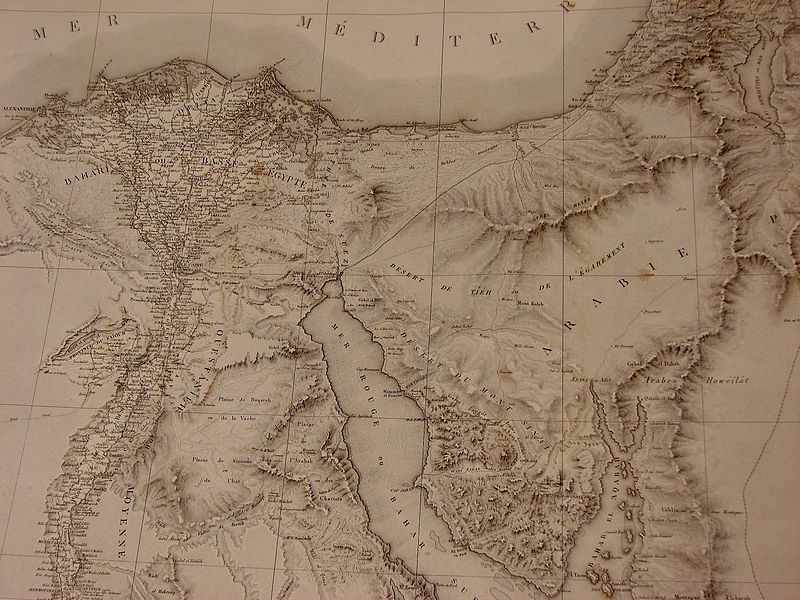
Returning to Egypt
Still another argument for the “Oral Law” is that Uriyyahu returned to Mitzrayim.2
Now there was another man who prophesied in the Name of the Eternal One – Uriyyahu son of Shema’yahu of Qiryat-hayye’arim, He prophesied concerning this city and concerning this land exactly like all the words of Yirmiyahu. When King Yehoyaqim and all his soldiers and all the officers heard his words, the king attempted to have him killed; Uriyyahu heard and became afraid and fled, going to Mitzrayim. (Yirmiyahu 26:20-21)3
Yet – it is argued by the Rabbinic Jews that the Yisraelites are forbidden from returning to Mitzrayim.
Moshe said to the people: Do not be afraid! Stand fast and see the Eternal One’s deliverance which he will work for you today, for as you see Miztrayim today, you will never see it again for the ages! (Shemot 14:13)1
As we can see clearly, this text is speaking to the Yisraelites that had just escaped Mitzrayim. God was telling them to remember this deliverance and not fear that they would be sent back to Mitzrayim as slaves. There is no indication that this text is a command to never return to Mitzrayim.
Only: he [the king] is not to multiply horses for himself, and he is not to return the people to Mitzrayim in order to multiply horses, since the Eternal One has said to you: You will never return that way again! (Devarim 17:16)1
This text is speaking directly to the prohibition of a king sending any Yisraelites back to Mitzrayim for the purpose of increases his number of horses. There is no indication that the Yisraelites are forbidden from returning to Mitzrayim for other purposes.
The Eternal One will return you to Mitzrayim in ships, by the route of which I had said to you: You shall not see it again anymore! You will put yourselves up for sale there to your enemies as servants and as maids, with none to buy (you). (Devarim 28:68)1
God says Himself that the Yisraelites will try to return and sell themselves to Mitzrayim. However, this is due to their own sins and their own iniquities and Mitzrayim will not come to their rescue.
None of these passages refer to a command for the Yisraelites to never return to Mitzrayim. So, there is no need for an “Oral Law.”
Tamei/Tahor
Upon the return to Yerushalayim Chaggai tested the priests to understand if they could properly carry out the service as instructed in the Torah.2
“Thus said the Eternal One, Master of Legions: Inquire, now, for a ruling from the Kohanim, saying, ‘If a person carries [sanctified] flesh in the corner of his garment, and then he touches bread with his [garment’s] corner, and [the bread touches] stew, and [the stew touches] wine or oil or any other food – does [that food] become [sanctified]?’ The Kohanim answered and said, “No.” Chaggai said, “If one who touched a dead person would touch all of these, would it become defiled?” And the Kohanim answered and said, “It would become defiled.” (Chaggai 2:11-13)3
Notice that it is God who told Chaggai to ask these questions and Chaggai did not do this of his own accord. The first question asks if sanctified food touches other items does it mean that the other items become sanctified. The Kohanim answered No – which is the correct answer – since non-sanctified foods would not become sanctified by merely coming into contact with sanctified foods. The second question is also answered correctly by the Kohanim because any contact with the deceased renders any person or object impure.
The text goes on to state:
Chaggai spoke up and said: So is this people and so is this nation before Me – the word of the Eternal One – and so is all their handiwork: what they offer there will be defiled. (Chaggai 2:14)3
Here we see Chaggai chastising the people for not internalizing Torah. Simply going through the motions and presenting sacrifices – sanctified flesh – does not automatically impart sanctity upon the people or their actions. In additions, Chaggai is using the second question he asked the Kohanim to inform the people that man’s natural tendencies lead to defilement and this is especially true for those who haven’t internalized Torah.
This entire passage is a type of teaching tool for the Yisraelites. There is no indication that this is a test for the Kohanim – the Kohanim had already been offering sacrifices so why would God now have them tested? This is not a proof text for an “Oral Law.”
———————-
1Everett Fox. The Five Books of Moses. New York: Schocken Books, 1997.
2Gil Student. “The Oral Law.” aishdas.org. The AishDas Soceity, 2001, accessed 15 April 2012. [http://www.aishdas.org/student/oral.htm]
3Nosson Scherman, ed. The Stone Edition Tanakh. New York: Mesorah Publications, Ltd., 2007.
